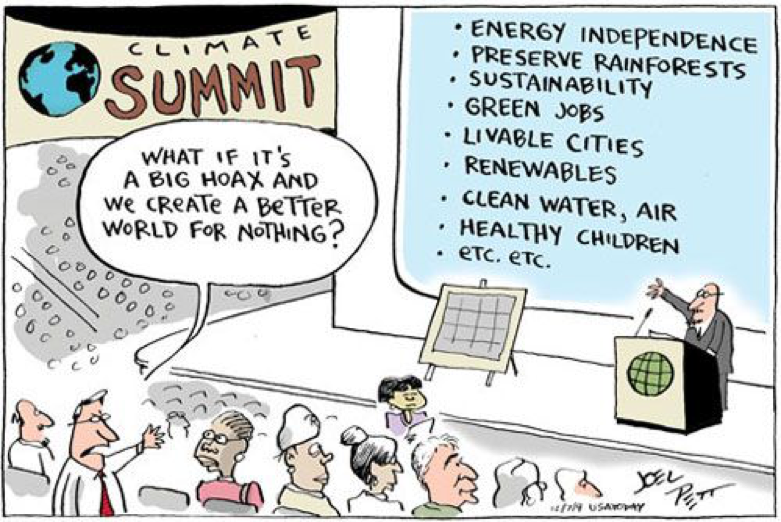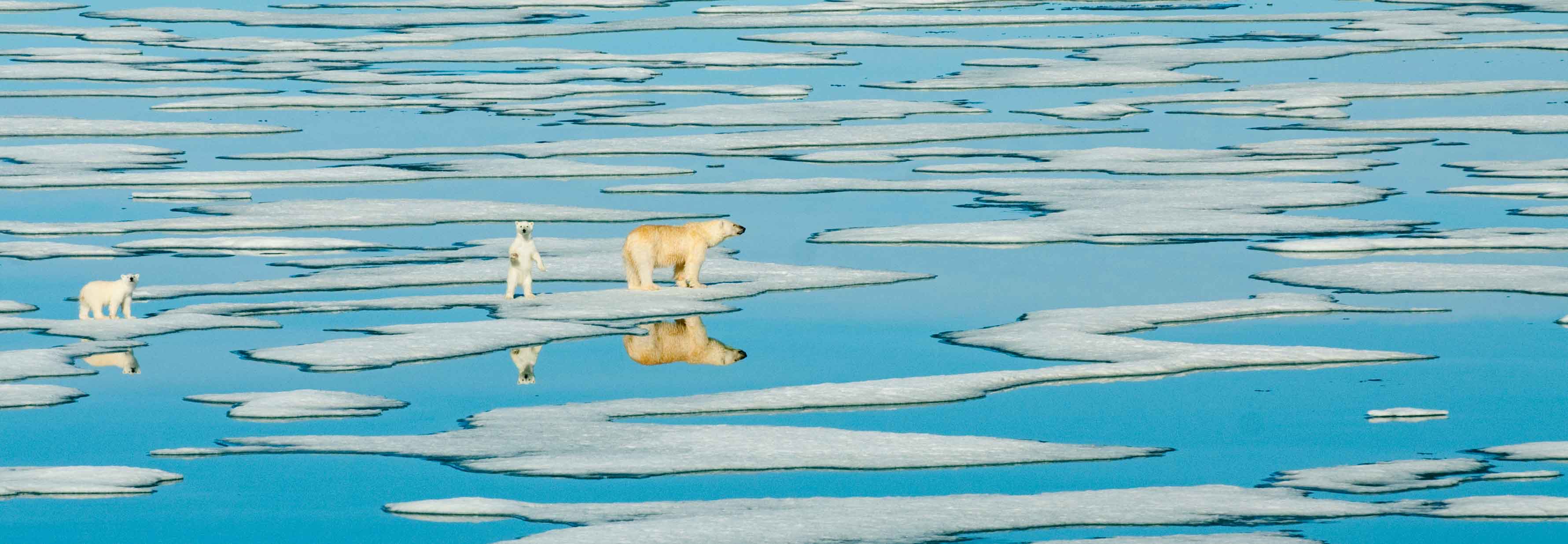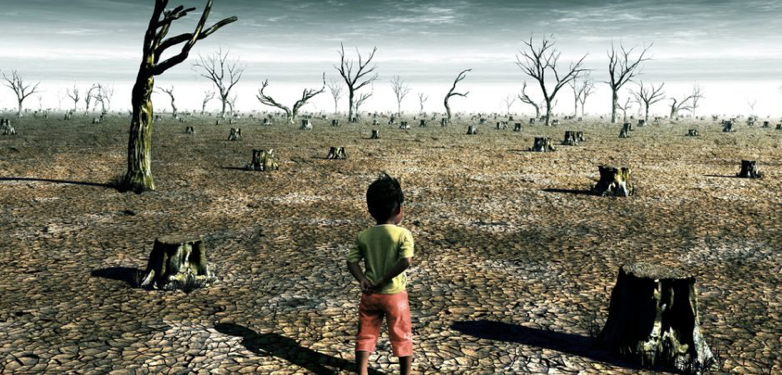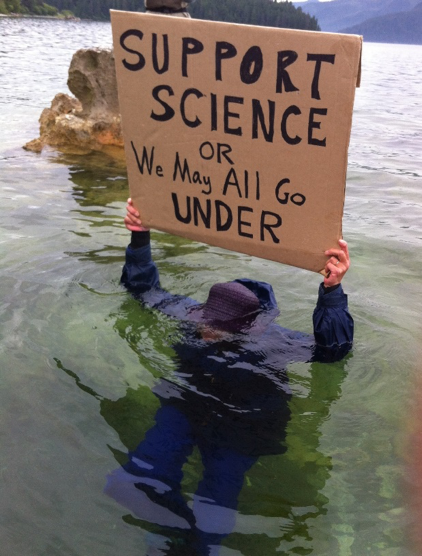1.10: Ethics
- Page ID
- 15514
\( \newcommand{\vecs}[1]{\overset { \scriptstyle \rightharpoonup} {\mathbf{#1}} } \)
\( \newcommand{\vecd}[1]{\overset{-\!-\!\rightharpoonup}{\vphantom{a}\smash {#1}}} \)
\( \newcommand{\dsum}{\displaystyle\sum\limits} \)
\( \newcommand{\dint}{\displaystyle\int\limits} \)
\( \newcommand{\dlim}{\displaystyle\lim\limits} \)
\( \newcommand{\id}{\mathrm{id}}\) \( \newcommand{\Span}{\mathrm{span}}\)
( \newcommand{\kernel}{\mathrm{null}\,}\) \( \newcommand{\range}{\mathrm{range}\,}\)
\( \newcommand{\RealPart}{\mathrm{Re}}\) \( \newcommand{\ImaginaryPart}{\mathrm{Im}}\)
\( \newcommand{\Argument}{\mathrm{Arg}}\) \( \newcommand{\norm}[1]{\| #1 \|}\)
\( \newcommand{\inner}[2]{\langle #1, #2 \rangle}\)
\( \newcommand{\Span}{\mathrm{span}}\)
\( \newcommand{\id}{\mathrm{id}}\)
\( \newcommand{\Span}{\mathrm{span}}\)
\( \newcommand{\kernel}{\mathrm{null}\,}\)
\( \newcommand{\range}{\mathrm{range}\,}\)
\( \newcommand{\RealPart}{\mathrm{Re}}\)
\( \newcommand{\ImaginaryPart}{\mathrm{Im}}\)
\( \newcommand{\Argument}{\mathrm{Arg}}\)
\( \newcommand{\norm}[1]{\| #1 \|}\)
\( \newcommand{\inner}[2]{\langle #1, #2 \rangle}\)
\( \newcommand{\Span}{\mathrm{span}}\) \( \newcommand{\AA}{\unicode[.8,0]{x212B}}\)
\( \newcommand{\vectorA}[1]{\vec{#1}} % arrow\)
\( \newcommand{\vectorAt}[1]{\vec{\text{#1}}} % arrow\)
\( \newcommand{\vectorB}[1]{\overset { \scriptstyle \rightharpoonup} {\mathbf{#1}} } \)
\( \newcommand{\vectorC}[1]{\textbf{#1}} \)
\( \newcommand{\vectorD}[1]{\overrightarrow{#1}} \)
\( \newcommand{\vectorDt}[1]{\overrightarrow{\text{#1}}} \)
\( \newcommand{\vectE}[1]{\overset{-\!-\!\rightharpoonup}{\vphantom{a}\smash{\mathbf {#1}}}} \)
\( \newcommand{\vecs}[1]{\overset { \scriptstyle \rightharpoonup} {\mathbf{#1}} } \)
\(\newcommand{\longvect}{\overrightarrow}\)
\( \newcommand{\vecd}[1]{\overset{-\!-\!\rightharpoonup}{\vphantom{a}\smash {#1}}} \)
\(\newcommand{\avec}{\mathbf a}\) \(\newcommand{\bvec}{\mathbf b}\) \(\newcommand{\cvec}{\mathbf c}\) \(\newcommand{\dvec}{\mathbf d}\) \(\newcommand{\dtil}{\widetilde{\mathbf d}}\) \(\newcommand{\evec}{\mathbf e}\) \(\newcommand{\fvec}{\mathbf f}\) \(\newcommand{\nvec}{\mathbf n}\) \(\newcommand{\pvec}{\mathbf p}\) \(\newcommand{\qvec}{\mathbf q}\) \(\newcommand{\svec}{\mathbf s}\) \(\newcommand{\tvec}{\mathbf t}\) \(\newcommand{\uvec}{\mathbf u}\) \(\newcommand{\vvec}{\mathbf v}\) \(\newcommand{\wvec}{\mathbf w}\) \(\newcommand{\xvec}{\mathbf x}\) \(\newcommand{\yvec}{\mathbf y}\) \(\newcommand{\zvec}{\mathbf z}\) \(\newcommand{\rvec}{\mathbf r}\) \(\newcommand{\mvec}{\mathbf m}\) \(\newcommand{\zerovec}{\mathbf 0}\) \(\newcommand{\onevec}{\mathbf 1}\) \(\newcommand{\real}{\mathbb R}\) \(\newcommand{\twovec}[2]{\left[\begin{array}{r}#1 \\ #2 \end{array}\right]}\) \(\newcommand{\ctwovec}[2]{\left[\begin{array}{c}#1 \\ #2 \end{array}\right]}\) \(\newcommand{\threevec}[3]{\left[\begin{array}{r}#1 \\ #2 \\ #3 \end{array}\right]}\) \(\newcommand{\cthreevec}[3]{\left[\begin{array}{c}#1 \\ #2 \\ #3 \end{array}\right]}\) \(\newcommand{\fourvec}[4]{\left[\begin{array}{r}#1 \\ #2 \\ #3 \\ #4 \end{array}\right]}\) \(\newcommand{\cfourvec}[4]{\left[\begin{array}{c}#1 \\ #2 \\ #3 \\ #4 \end{array}\right]}\) \(\newcommand{\fivevec}[5]{\left[\begin{array}{r}#1 \\ #2 \\ #3 \\ #4 \\ #5 \\ \end{array}\right]}\) \(\newcommand{\cfivevec}[5]{\left[\begin{array}{c}#1 \\ #2 \\ #3 \\ #4 \\ #5 \\ \end{array}\right]}\) \(\newcommand{\mattwo}[4]{\left[\begin{array}{rr}#1 \amp #2 \\ #3 \amp #4 \\ \end{array}\right]}\) \(\newcommand{\laspan}[1]{\text{Span}\{#1\}}\) \(\newcommand{\bcal}{\cal B}\) \(\newcommand{\ccal}{\cal C}\) \(\newcommand{\scal}{\cal S}\) \(\newcommand{\wcal}{\cal W}\) \(\newcommand{\ecal}{\cal E}\) \(\newcommand{\coords}[2]{\left\{#1\right\}_{#2}}\) \(\newcommand{\gray}[1]{\color{gray}{#1}}\) \(\newcommand{\lgray}[1]{\color{lightgray}{#1}}\) \(\newcommand{\rank}{\operatorname{rank}}\) \(\newcommand{\row}{\text{Row}}\) \(\newcommand{\col}{\text{Col}}\) \(\renewcommand{\row}{\text{Row}}\) \(\newcommand{\nul}{\text{Nul}}\) \(\newcommand{\var}{\text{Var}}\) \(\newcommand{\corr}{\text{corr}}\) \(\newcommand{\len}[1]{\left|#1\right|}\) \(\newcommand{\bbar}{\overline{\bvec}}\) \(\newcommand{\bhat}{\widehat{\bvec}}\) \(\newcommand{\bperp}{\bvec^\perp}\) \(\newcommand{\xhat}{\widehat{\xvec}}\) \(\newcommand{\vhat}{\widehat{\vvec}}\) \(\newcommand{\uhat}{\widehat{\uvec}}\) \(\newcommand{\what}{\widehat{\wvec}}\) \(\newcommand{\Sighat}{\widehat{\Sigma}}\) \(\newcommand{\lt}{<}\) \(\newcommand{\gt}{>}\) \(\newcommand{\amp}{&}\) \(\definecolor{fillinmathshade}{gray}{0.9}\)by Kathleen Dean Moore1 and Michael Paul Nelson2
1Distinguished Professor of Philosophy, Emerita, Oregon State University.
2Ruth H. Spaniol Chair of Renewable Resources, Professor of Environment Ethics and Philosophy, Department of Forest Ecosystems and Society, Oregon State University.
Do We Have a Moral Responsibility to Stop Global Temperature Rise ?[1]
The Relevance of Ethics to the Climate Change Discussion
Scientists continue to provide overwhelming evidence that greenhouse gas pollution, environmental degradation, and consequent global climate change are profoundly dangerous to humans and to other life on Earth. A group of 500 scientists led by a team from Stanford issued this recent warning: “Unless all nations take immediate action, by the time today’s children are middle-aged, the life-support systems of the Earth will be irretrievably damaged” (Barnosky et al., 2013). But to the surprise and frustration of the scientists, all nations are not taking immediate action to slow climate change, and people are largely silent, even acquiescent, in the face of real threats to their futures and the futures of all beings that evolved under this – not another, hotter, more volatile and violent – climate.
What accounts for this disconnect between facts and actions?
An answer can be found in the logic of practical decision-making, the form of reasoning that leads from facts to sound conclusions about what course of action a person or government should take. The logic goes like this:
Any argument that reaches a conclusion about what ought to be done will have two premises. The first is a statement of fact, a descriptive statement based on empirical evidence, often grounded in observation and science: This is the way the world is; this is the way the world may become under a certain set of conditions. The second premise is a statement of value, a prescriptive statement, a moral affirmation based on cultural values and ethical norms: This is the way the world ought to be; this is good, this is just, this is a worthy goal. From this partnership of facts and values, but from neither alone, we can reason to a reliable conclusion about what we ought to do (Box 1). One might say that the first premise alone is a world without a compass. The second premise alone is a compass without a world. Only together can they point in the direction we ought to go.
Box 1: The logic of practical decision making. An example
| The factual premise | If we do not act soon, anthropogenic environmental changes will bring serious harms to the future. |
| The ethical premise | We have a moral obligation to avert harms to the future, so as to leave a world as rich in life and possibility as the world we inherited. |
| The conclusion | Therefore, we have a moral obligation to act, and act now. |
Scientists have done an impressive, sometimes even heroic, job of documenting the factual premise. But the ethical premise is still under discussion – what is our obligation to the future? The stakes of this discussion are high.ocumenting the factual premise. But the ethical premise is still under discussion – what is our obligation to the future? The stakes of this discussion are high.
Do We Have a Moral Obligation to Take Action to Protect the Future of a Planet in Peril?
2010 project asked one hundred of the world’s moral leaders from a wide variety of worldviews and continents if we – governments and individuals – have a moral obligation to do what we can to prevent catastrophic climate change, and if so, why (Moore and Nelson, 2010). The goal was not to find the right answer, but to find a great abundance of answers, so that no matter what views people bring to the discussion, they will find at least one reason that speaks powerfully to them. Yes, the moral leaders wrote back, we must take action, for a wide variety of reasons. Here are just seven of their answers (Box 2).
Box 2: Do we have an obligation to take action to prevent catastrophic climate change
- Yes, to protect the thriving of humankind.
- Yes, for the sake of the children.
- Yes, for the sake of the Earth and all its lives .
- Yes, because the gifts of the Earth are freely given, and we are called to gratitude and reciprocity.
- Yes, because compassion requires us to reduce or prevent suffering.
- Yes, because justice demands it.
- Yes, because our moral integrity requires us to do what we believe is right.
1. We must act, to protect the thriving of humankind.
Daniel Quinn, author of Ishmael, explained our peril. “We are like people living in the penthouse of a hundred story building. Every day we go downstairs and at random knock out 150 bricks to take upstairs to increase the size of our penthouse. Since the building below consists of millions of bricks, this seems harmless enough . . . for a single day. But for 30,000 days? Eventually—inevitably—the streams of vacancy we have created in the fabric of the walls below us must come together to produce a complete structural collapse. When this happens—if it is allowed to happen—we will join the general collapse, and our lofty position at the top of the structure will not save us.” (Quinn, 2010)
Of course, not everyone thinks that a catastrophic crash in human numbers would be a bad thing — wouldn’t the world be better off without us? But consider: for whatever purpose and by whatever process, in humans, the universe has evolved the capacity to turn and contemplate itself – to seek to understand the universe and to celebrate the mysteries of what we cannot understand. And whatever the faults of our species – and they are innumerable and tragic – we, maybe alone, have the capacity to imagine how we might be better.
This is the positive side of action to avert climate catastrophe. At this hinge point in history, we have not only the chance to escape the worst of the harms, but the chance to make a “great turning” (Macy and Johnstone, 2012) toward a healthier, more just and joyous planetary civilization.

The upshot: If severe planetary change threatens to undermine the foundations of human thriving, and if human thriving is a fundamental value, then we have an obligation to avert the degradations that threaten us. Anyone who accepts the scientific evidence about the dangers of climate change and affirms the value of human life, will not be able to sit on their hands.
2. We must act, for the sake of the children.
James Speth, former Dean of the School of Forestry and Environmental Studies at Yale, writes, “All we have to do to destroy the planet’s climate and ecosystems and leave a ruined world to our children and grandchildren is to keep doing exactly what we are doing today” (Speth, 2010). If climate destabilization will be manifestly harmful to children, as Speth claims, and if we have a moral obligation to protect children, then we have an obligation to expend extraordinary effort to prevent catastrophic climate change.
Then twelve -year old Severn Suzuki, speaking at the UN’s Earth Summit in Rio de Janeiro, said, “Parents should be able to comfort their children by saying ‘everything’s going to be all right,’ ‘it’s not the end of the world,’ and ‘we’re doing the best we can.’ But I don’t think you can say that to us anymore.” The question then is: What must we do, in order to tell our children honestly that we’re doing the best we can for them?
It’s important to think carefully about what those extraordinary efforts are. People might say, “I don’t care about ethics. All I care about are my children. And I am going to make as much money as I can, so that they can be safe and happy all their lives.” Doesn’t everyone want a safe and happy future for their children? The irony, of course, is that we harm them even as (especially as) we try to provide for them. In the end, the amassing of material wealth in the name of our privileged children’s future is what will hurt them the most, as it exhausts the resilience of the planet’s life-supporting systems. And what our decisions will do to the children who are not privileged is not just an irony; it’s a moral wrong. These children, who will never know even the short-term benefits of misusing fossil fuels, are the ones who will suffer first as rising seas flood their homes, fires scorch cropland, diseases spread north, and famines scourge lands that had been abundant.
3. We must act for the sake of the Earth and all its lives, because the community of Earth and its lives has intrinsic and infinite value.
The failure to act on behalf of the Earth and all its creatures is, of course, a great imprudence – a cosmic cutting-off-the-limb-you’re-sitting-on stupidity. But it is also a moral failure. That is because the planetary community (this swirling blue sphere crammed with life) is not only instrumentally valuable. That is, it’s not just valuable because it is supportive of human life. Rather, the Earth, like a human being, has value in and of itself. It has what philosophers call intrinsic value. We have responsibilities to honor and protect what is of value. So we have the responsibility to honor and protect the Earth as we find it, a rare blue jewel in the solar system.

Figure \(\PageIndex{2}\): Kim Heacox, reprinted by permission.
Philosopher Kathleen Dean Moore writes,
Premise 1. It’s not just the sun in winter, the salmon sky that lights the snow, or blue rivers through glacial ice. It’s the small things, too – the kinglet’s gold crown, the lacy skeletons of decaying leaves, and the way all these relate to one another in patterns that are beautiful and wondrous. The timeless unfurling of the universe has brought the Earth to a glorious richness that awakens in the human heart a sense of joy and wonder.
Premise 2. It is right to protect what is wondrous and wrong to destroy it. This is part of what “right” means – to enhance, rather than diminish, what is of value.
Conclusion. This is how we ought to act in the world – with respect, with deep caring and fierce protectiveness, and with a full sense of our obligation to the future, that this planetary richness shall remain.[2
4. Yes, because the gifts of the Earth are freely given, and we are called to gratitude and reciprocity.
Begin with this fact: The gifts of the Earth (what we cravenly call “natural resources” or “ecosystem services”) are freely given — rain, sun, fresh air, rich soil, all the abundance that nourishes our lives and spirits. Perhaps they are given to us by God or the gods; maybe they are the fruits of a fecund Earth. It doesn’t matter to the argument: let that be a mystery, why we are chosen to receive such amazing gifts. What is important is that they are given. We do not earn these gifts. We have no claim on them. If they were taken away, there is nothing we could do to retrieve them. At the same time, we are utterly dependent on these gifts. Without them, we quickly die. This unequal relationship, the relationship of giver and receiver of gifts, makes all the moral difference.
We understand the ethics of gift-giving. To receive a gift requires us to be grateful. To dishonor or disregard the gift — to ruin it, or waste it, to turn it against the giver or lay greedy claim to it or sourly complain — all these violate our responsibilities as a recipient. Rather, to be grateful is to honor the gift in our words and our actions, to say, “This is a great gift,” and to protect it and use it well. In this way, gratitude calls us to attentiveness, celebration, and careful use.
Furthermore, an important part of gratitude is reciprocity, the responsibility to give in return. We give in return when we use our gifts well for the benefit of the Earth and the inhabitants who depend on its generosity. In this way, gratitude for our abundant gifts is the root of our moral obligation to the future to avert the coming climate calamities and leave a world as rich in possibilities as the world that has been given to us.
5. We must act from compassion, which requires us to reduce or prevent suffering.
Of all the virtues that a human being can possess, the greatest may be compassion. ‘Compassion,’ to ‘feel with,’ to imagine ourselves in another’s place. To be frightened as they are frightened by a suddenly unstable world, to be bewildered as they wonder where to turn, to suffer their thirst and anger. Understanding the joys or sufferings of others, the compassionate person is joyous or suffers too. The truly compassionate person also acts in the world, providing conditions that bring forth joy and preventing or diminishing conditions that create pain.
Among the calamities of climate change and the resulting environmental degradation is an increase in human suffering and the suffering of other feeling beings. Climate change disrupts food supplies, reduces or contaminates drinking water, spreads disease, increases the terror of storms, floods great cities, and cracks villages into the sea. The price of the reckless use of fossil fuels will be paid in large part by human suffering.

Figure \(\PageIndex{2}\): Unknown artist.
If virtuous people are compassionate, if compassionate people act to reduce suffering, if climate change will cause suffering greater than the world has ever known, then we who call ourselves virtuous have an inescapable obligation to the future to avert the effects of the coming calamities.
6. We must act, because justice demands it.
If people have inalienable rights to life, liberty, and the pursuit of happiness, then the carbon-spewing nations are embarking on the greatest violation of human rights (Universal Declaration of Human Rights) the world has ever seen. Uprooting people from their homes, exposing them to new disease vectors, disrupting food supply chains — it’s a systematic violation of human rights. By whom, and for what? By the wealthy nations who can’t or won’t stop spewing carbon into the air. For what? For self-enrichment, the continuation of wasteful and pointless consumption of material goods. Why? Because of the failure of conscience or will to create a fairer way of living on the planet.
It’s not just a violation of rights: Those who are suffering, and will suffer, the most severe harms from climate change (at least in the short term, until it engulfs us all) are those least responsible for causing the harm. That’s not fair.
Sheila Watt-Cloutier, the former chair of the Inuit Circumpolar Council, wrote of the human rights claims of northern-latitude people: “We Inuit and other Northerners . . . are defending our right to culture, our right to lands traditionally used and occupied, our right to health, our right to physical security, our right to our own means of subsistence and our rights to residence and movement. And as our culture, again, as I say, is based on the cold, the ice and snow, we are in essence defending our right to cold.”
7. We must act, because personal integrity requires us to do what’s right.
When people are asked to rate their hope that humankind will find a way to maintain a livable climate — on a scale of one (not a snowball’s chance in hell) to ten (nothing to worry about) — they generally come in at about three to four on the hope-o-meter.[3] They speak wistfully: “Let’s face it. Our options are limited, our cities and homes and transportation systems are disgracefully designed, destructive ways of living are skillfully protected by tangles of profit and power around the world, extractive corporations are behaving like sociopaths (see “characteristics of a sociopath”), and we have run out of time. How can any reasonable person be hopeful? And if you don’t have hope, then why should you act?”
But to think there are only two options — hope and despair — is a fallacy of false dichotomy. Between hope and despair is the broad and essential expanse of moral ground, which is not acting out of hope or failing to act out of despair, but acting out of personal integrity.

Figure \(\PageIndex{2}\): By Nick Olmsted, reprinted by permission.
Integrity: a matching between what you believe and what you do, which is walking the talk. To act justly because you believe in justice. To live gratefully because you believe life is a gift. To act lovingly toward the Earth, because you love it. The meaning of our lives is not in what we accomplish in the end, any more than the meaning of a baseball game is the last out. What makes our lives meaningful is the activities we engage in that embody our values, whatever happens in the world. What does integrity ask of us? First, to refuse to be made into instruments of destruction. With thoughtless decisions about what we invest in, what we buy, what we praise, what we value, what we do for a living, we volunteer to be the foot soldiers of corporate destruction. Soldiers used to say, “Hell no,” to an unjust war. Can we say the same to an unjust, far more disastrous, way of life?
Integrity calls us to live in ways that express our deepest values. As we live with integrity, we can escape the unsettled grief of lives that violate our deeply held beliefs about right and wrong. As we live with integrity, we can imagine and bring into being new ways of living on the land that are bright with art and imagination, nested into families and communities, grateful and joyous – and lasting for a very long time
Questions
- If you were asked to rate your hope that humankind will find a way to maintain a livable climate on a scale of one (not a chance) to ten (nothing to worry about), what is your number on the hope-o-meter? Has it changed from the beginning of this class to the end? Why?
- Of the seven reasons to take action to prevent climate catastrophe, which speaks most powerfully to you? To your classmates? (After you have made your decisions, it might interest you to compare it to the rankings of a prior Oregon State University class: 1. Because moral integrity requires us to do what is right. 2. Because justice demands it. 3. For the sake of all forms of life on the planet. 4. For the sake of the children. 5. To honor our duties of gratitude and reciprocity. 6. Because compassion requires it. 7. To protect the thriving of humankind – one lousy vote.)
- Former President Obama argues that we are borrowing this planet from our children and our grandchildren. Play out that analogy. In what way, borrowing? What does that mean for how we should act?
- Suppose you come upon a person who is drowning and calling out for help. What effect does each of the following (considered separately) have on your personal responsibility to save the person?
- You know the person is drowning.
- You cannot swim.
- A thousand people are standing with you, watching the person flailing around.
- You didn’t push the person into the water.
- You are busy, on your way to an important meeting.
- Saving the person would require some financial sacrifice, since you are wearing expensive clothes and watch, which would be ruined.Now, how is this case similar, and dissimilar from our personal responsibility to take action to counter climate change?
- Australian philosopher Peter Singer argues that there is a fair and practical way to allocate the right to emit greenhouse gases:Take the total capacity of the atmosphere to absorb greenhouse gases without harmful effects, divide it by the number of people on Earth. That is an individual’s fair share. Allocate to each country an emissions quota equal to its population’s shares. Then create a market in which countries that want a higher quota can buy shares from counties that emit less.In your considered judgment, is this fair?
- The Buddhist scholar Thich Nhat Hanh writes, “Our own life has to be our message.” If so, then we had each better ask these questions: What message do I want my life to send? What might I do to send that message? What do I do now that might prompt someone to read the contrary message?
Videos
References
Moore, K. D. and M. P. Nelson (2010) Moral Ground: Ethical Action for a Planet in Peril, San Antonio: Trinity University Press, ISBN 978-1-59534-066-5.
Moore, K. D. and M. P. Nelson (2012) It’s Wrong to Wreck the World: Moral Call to Protect the Environment, Earth Island Journal 26 (4).
Barnosky, A. D. et al. (2013) Scientific Consensus on Maintaining Humanity’s Life Support Systems in the 21st Century: Information for Policy Makers.
Quinn, D. (2010) The Danger of Human Exceptionalism, in Moral Ground: Ethical Action for a Planet in Peril. Kathleen D Moore and Michael P. Nelson, eds. San Antonio: Trinity University Press, 9-14.
Speth, J. (2010) The Limits of Growth, in Moral Ground: Ethical Action for a Planet in Peril. Kathleen D Moore and Michael P. Nelson, eds. San Antonio: Trinity University Press, 2010, 3-8.
Macy, J. and C. Johnstone (2012) Active Hope: How to Face the Mess We’re in without Going Crazy, New World Library, ISBN: 978-1-57731-972-6, Pages: 288.
- Adapted from Moore and Nelson (2010, 2012) ↵
- Moore and Nelson (2010) 329-330. ↵
- Informal polling of the audience members who attend the climate ethics talks given by Kathleen Dean Moore and Michael P. Nelson, 2010-2017. ↵


